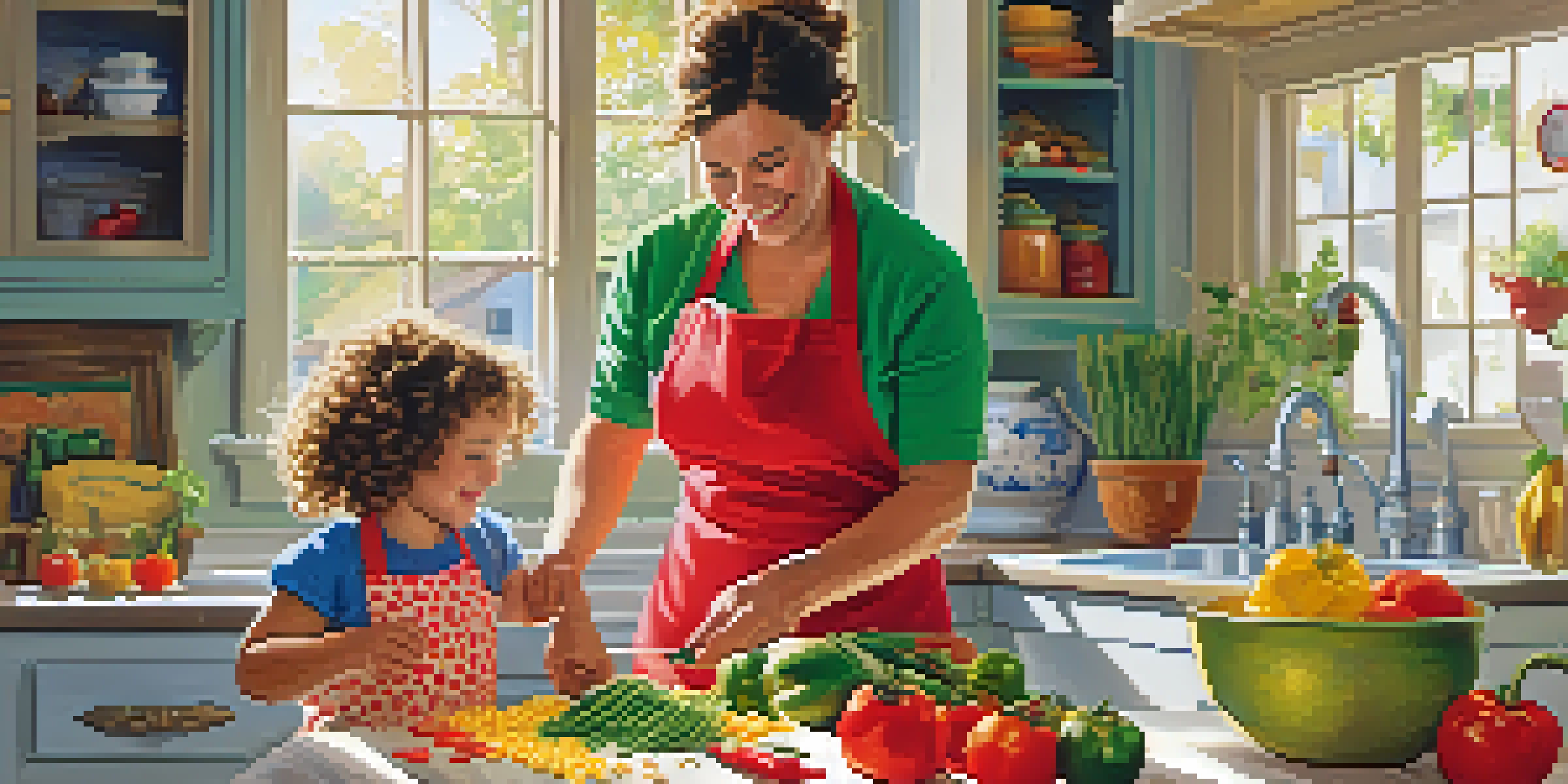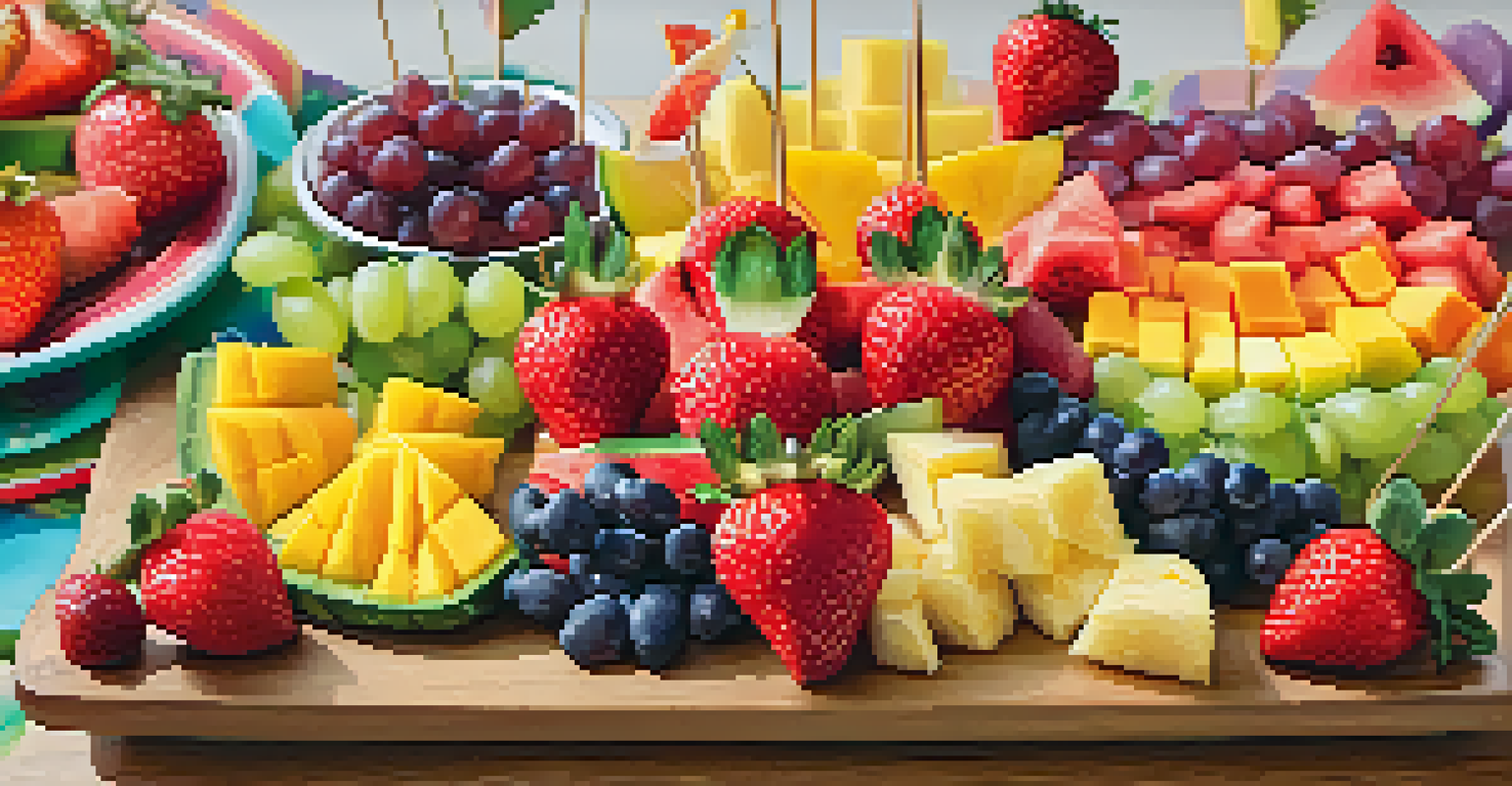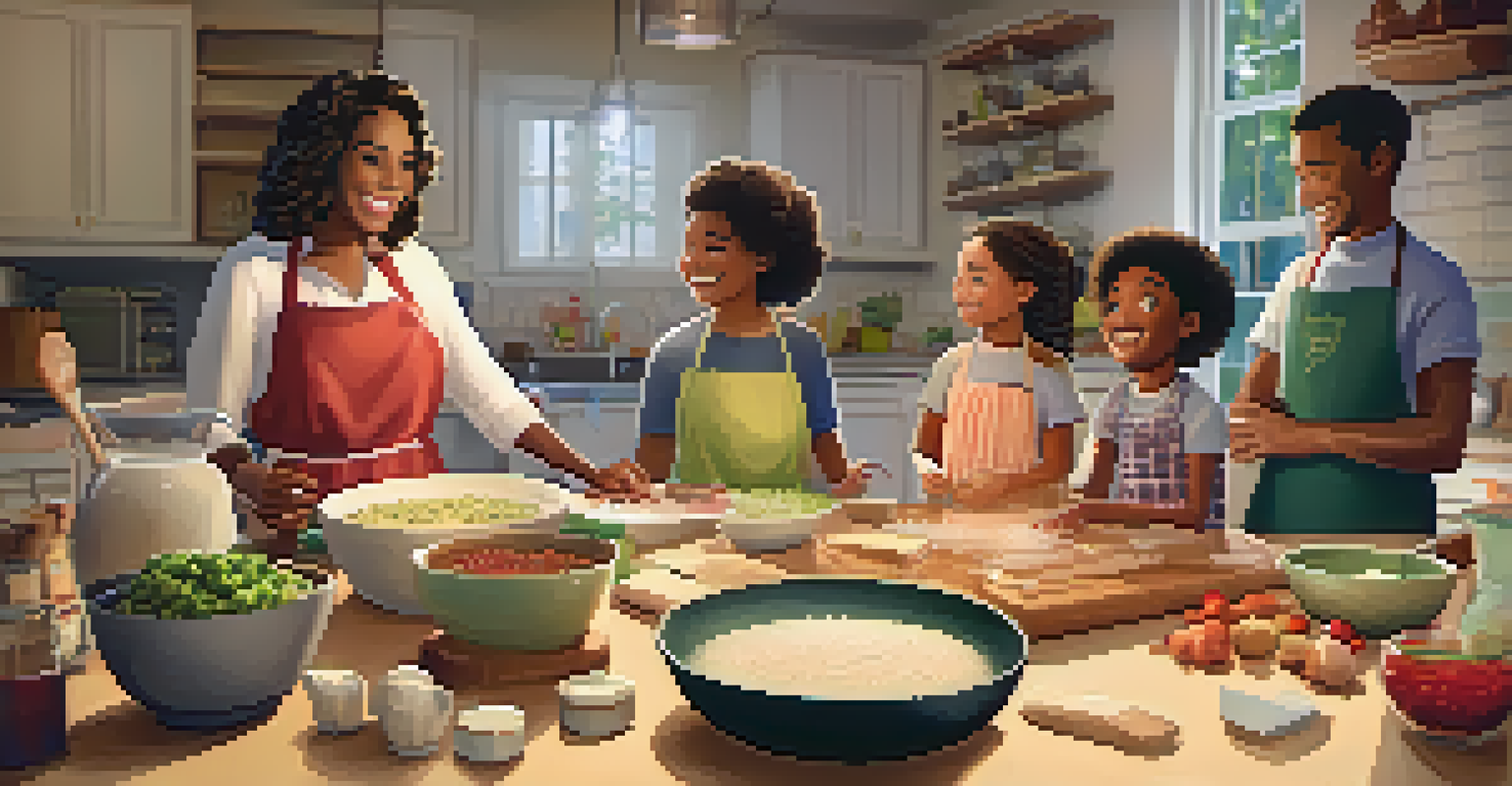Cooking with Kids: Engaging Workshops for Young Chefs

The Joy of Cooking Together: Why It Matters
Cooking with kids is not just about making meals; it’s about creating memories. When children step into the kitchen, they engage all their senses and learn valuable skills that last a lifetime. It’s an opportunity for bonding, laughter, and creativity, turning an everyday chore into a delightful experience.
Cooking together creates a bond that strengthens family ties and builds lasting memories.
Moreover, cooking can boost a child's confidence. When they successfully create a dish, they feel a sense of accomplishment that can encourage them in other areas of life. This newfound confidence can even extend beyond the kitchen, inspiring them to tackle challenges head-on.
Lastly, preparing food together fosters healthy eating habits. By involving children in the cooking process, they become more interested in trying new foods and understanding where their meals come from. This hands-on experience can lead to a lifelong appreciation for nutritious ingredients.
Choosing the Right Workshops for Kids
Selecting a cooking workshop for children can be overwhelming, given the variety of options available. Look for classes specifically designed for kids, where the instructors are experienced in working with young learners. It’s vital that the environment is safe, fun, and encourages exploration.

Consider the age appropriateness of the workshop. Classes that cater to different age groups allow for tailored experiences that match skill levels. For instance, younger kids might enjoy simple recipes with minimal steps, while older children can tackle more complex dishes.
Cooking Builds Lasting Memories
Cooking with children not only creates delicious meals but also fosters bonding and joyful experiences that last a lifetime.
Additionally, focus on workshops that emphasize teamwork and creativity. Cooking is a collaborative effort, and workshops that foster this spirit can help kids learn to communicate, share ideas, and celebrate each other's successes in the kitchen.
Essential Skills Kids Learn in Cooking Workshops
Cooking workshops provide a wonderful platform for kids to develop essential life skills. Basic cooking techniques, such as chopping, measuring, and mixing, are fundamental skills that enhance their culinary repertoire. These hands-on experiences make learning fun and memorable.
Food brings us together, and cooking is a way to share love and creativity with others.
Moreover, kids learn about nutrition and the importance of balanced meals. Understanding what goes into their food empowers them to make healthier choices, setting the foundation for a lifetime of good eating habits. Workshops that incorporate discussions about ingredients can spark curiosity about nutrition.
Finally, cooking teaches children patience and problem-solving. When a recipe doesn’t turn out as expected, they learn to adapt and find solutions. This resilience is a valuable lesson that extends beyond the kitchen, preparing them for various challenges in life.
Fun and Easy Recipes for Young Chefs
Incorporating fun and easy recipes into workshops keeps kids engaged and excited. Think colorful fruit skewers, homemade pizzas, or DIY tacos that allow for creativity and personalization. Such recipes not only taste great but also encourage kids to explore their culinary preferences.
Interactive recipes, like no-bake desserts, are also fantastic for young chefs. They can mix ingredients without the need for an oven, making it safer and easier. Plus, they get to enjoy the instant gratification of a delicious treat without long waiting times.
Workshops Enhance Life Skills
Cooking workshops empower kids with essential skills in cooking, nutrition, and problem-solving, setting a foundation for healthy habits.
Don’t forget to include seasonal recipes! Cooking with seasonal ingredients can teach kids about nature’s cycles and inspire them to appreciate fresh produce. For instance, a summer workshop might focus on refreshing salads, while a winter class could delve into hearty soups.
The Role of Parents in Cooking Workshops
Parents play an essential role in the success of cooking workshops for kids. Their encouragement and involvement can significantly enhance the experience. When parents participate, it shows children the value of cooking and spending time together, making it a cherished family activity.
Moreover, parents can help reinforce the skills learned in workshops at home. By cooking together as a family, they not only practice what was taught but also create a routine that makes cooking a regular part of life. This continuity can bolster a child's confidence and interest in the kitchen.
Finally, parents should communicate with workshop instructors. By sharing their child’s interests and any dietary restrictions, they can ensure that their child gets the most out of the experience. This collaboration can help tailor the learning experience and make it even more enjoyable.
Creating a Safe and Fun Kitchen Environment
Safety is paramount when cooking with kids, both in workshops and at home. Setting clear rules and guidelines helps establish a safe environment where children feel secure while learning. For example, teaching them about handling sharp utensils and the importance of cleanliness can go a long way.
In addition to safety, making the kitchen a fun place to explore is crucial. Incorporating games, challenges, or themed cooking nights can keep kids engaged and excited. When they associate cooking with fun, they’re more likely to develop a lasting passion for it.
Parental Involvement is Key
Active participation from parents in cooking activities reinforces skills learned in workshops and strengthens family connections.
Lastly, encourage creativity in the kitchen. Allowing kids to experiment with flavors and presentation can lead to exciting culinary discoveries. When they feel free to express themselves, they develop a deeper connection to cooking as an art form.
Celebrating Young Chefs: Showcasing Their Creations
Celebrating the accomplishments of young chefs is an important aspect of their culinary journey. After completing a workshop, hosting a mini cooking show or a family dinner can be a great way to showcase their creations. This not only boosts their confidence but also makes them feel proud of their efforts.
Additionally, consider keeping a cooking journal or scrapbook. Documenting their culinary adventures, favorite recipes, and personal notes can be a wonderful keepsake. This reflection encourages creativity and inspires them to continue exploring the culinary world.

Finally, sharing their dishes with friends and family creates a sense of community. It fosters an appreciation for the hard work that goes into cooking, and it can inspire others to join in on the fun. Celebrating their achievements reinforces the idea that cooking is not just a skill, but a joyful experience to be shared with others.